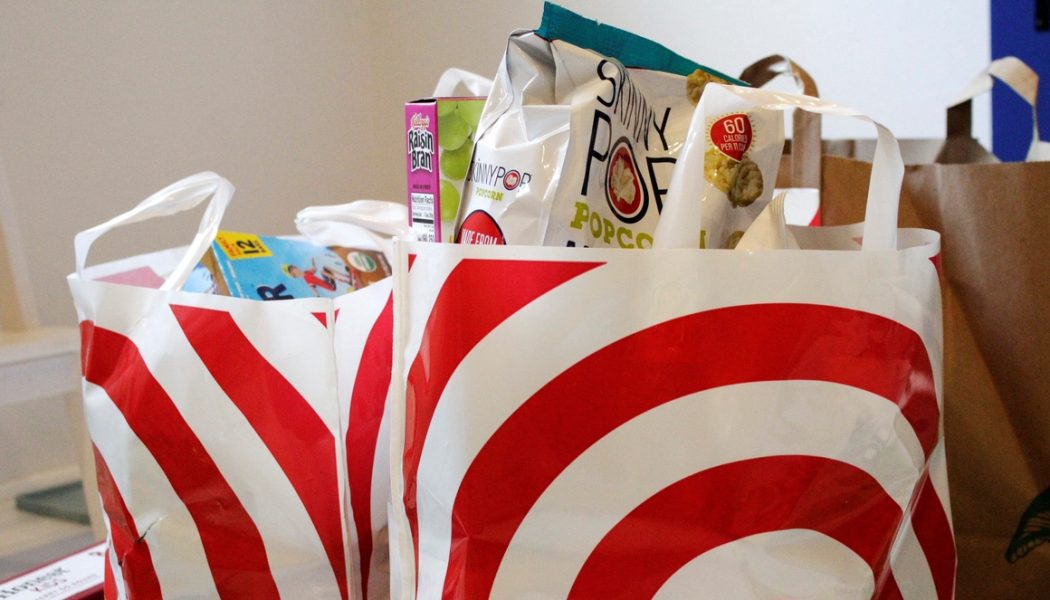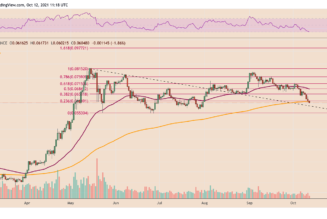.jpg)
In Belgium, Germany and the Netherlands, farmers have had to destroy millions of tons of unsold potatoes because people can’t eat fries in restaurants and bars.
The crisis has also brought about a resurgence of single-use plastics. In supermarkets across the Continent, buns, apples and avocados are smothered in plastic wrap — and people worried about catching a deadly disease don’t care.
“People are now more focusing on the hygienic and long-life aspects when it comes to foods and vegetables,” Mara Hancker, managing director of the German lobby for plastic packaging, said over the phone, adding that “people don’t have faith anymore in these products without the packaging.”
While garbage grows, the packaging industry sees an opening. The European lobby group for plastic manufacturers wants the European Commission and member countries to delay upcoming regulations and to lift all bans on some single-use plastic items.
“During the last one or two years, the discussion has been very much driven by gut feelings and not by facts — we have very strong initiatives to go to plastics-free or packaging-free … but are saying that there are good reasons to have plastics,” Hancker said.
A report from research firm BloombergNEF found that, in the short term at least, concerns “around food hygiene due to COVID-19 could increase plastic packaging intensity, undoing some of the early progress made by companies.”
NGOs are crying foul.
“The plastic bag industry has lost a lost of ground and is now running around [saying] that single-use plastics are more hygienic than reusable bags, and I have to say that is a claim that is not evidence-based and feeds on people’s anxieties,” said Jane Muncke, managing director of the NGO Food Packaging Forum, at a webinar earlier this week.
While the industry touts the benefits of disposable plastics, the environmentally friendlier alternative of reusable cups and bags is now seen as a disease threat.
Some European retailers have banned customers from using their own containers for food in order to avoid contamination risks. Coffee chain Starbucks won’t allow people to use reusable cups — only serving drinks in disposable single-use cups. In the U.S., some states banned reusable bags after misleading articles warned that reusable tote bags are worse than plastic ones for spreading coronavirus
Yet EU and national food safety agencies say there is no evidence of food or food packaging being associated with transmission of COVID-19. A lot of that worry comes from a study by the U.S. National Institutes of Health, which found that the virus can survive up to three days on some surfaces, but scientists say those fears are overblown.
Karsten Nöckler, the head of the biological safety department at Germany’s Federal Institute for Risk Assessment, told POLITICO last month that “if you’re making such studies, you have to use a relatively high amount of the virus to measure effect at the end … this proof does not comply with realistic conditions.”
The coronavirus is also not helping the EU to achieve one of its most important goals in the upcoming Farm to Fork strategy — halving food waste across the bloc by 2030.
In the last month, a lot of edible food has been thrown away due to supply chain problems, the closure of restaurants, bars and hotels, as well as changes in consumer demand during the lockdown.
“The whole chain struggles to minimize waste … but it is a challenge,” said Pekka Pesonen, the secretary-general of Copa Cogeca, a trade association of European farmers.
Worried Europeans have increased their spending on packaged foods with long shelf lives — a lot of which isn’t getting eaten.
“Consumers seem to have gone to more non-perishable products, such as flour, pasta, canned food, UHT milk and cream, eggs, yeast and minced meat. All this will potentially create a risk for food waste in other parts of the value chain and different product categories,” Pesonen said.
It’s an even bigger problem for the makers of perishable foodstuffs, such as milk, fruit and vegetables and grains, according to Pesonen.
Agriculture ministries and farming associations across the bloc are warning that the situation is especially dire in the dairy sector. Because milk prices are down, some dairy farmers are dumping unsellable milk.
That’s prompting governments to introduce schemes to redistribute food that would otherwise rot.
In the U.K., the government is giving English food-redistribution organizations £3.25 million to help cut food waste and resell up to 14,000 tons of surplus stock; it is also spending €6 million on raw milk and €14 million on Pecorino cheese to resell to families in need.
Some EU agriculture ministers, including those from France, Germany and Poland, want the Commission to allow them to use emergency market measures, such as temporary permits to buy certain products from the market (so-called public intervention) or subsidizing storage to minimize food waste.
The problem isn’t just mountains of uneaten food. The pandemic is also leaving crops rotting in fields.
Before the crisis, farmers relied on cross-border seasonal workers, often from Eastern Europe, to help harvest crops. But closed borders and travel restrictions mean asparagus, cucumbers and strawberries on many European fields are likely to go to waste.
Want more analysis from POLITICO? POLITICO Pro is our premium intelligence service for professionals. From financial services to trade, technology, cybersecurity and more, Pro delivers real time intelligence, deep insight and breaking scoops you need to keep one step ahead. Email [email protected] to request a complimentary trial.









